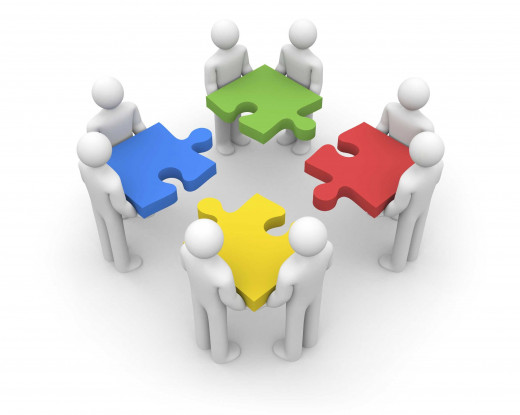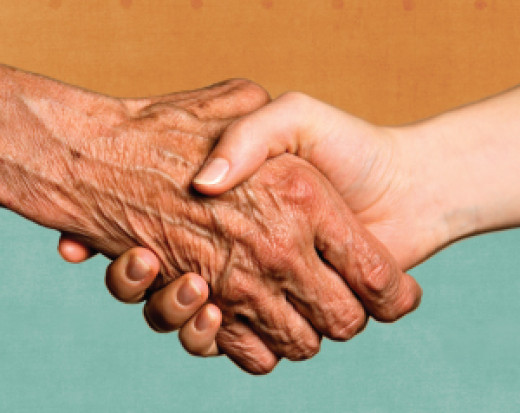Benevolence in Psychology
Benevolence is the activity of one person or thing helping another with the intention to help or benefit the other. Wouldn't the world run better if government had the peoples' best interest in mind? There are reasons why people have a benevolent attitude towards other people as well as causes and effects that tie in to the reasoning behind why someone acts a certain way. If the government made a lot of agreements that gave more money to lazy, but desperate people, that would be a form of benevolence, although it is teaching the person that things will be handed to them. This is benevolence on a large scale, but these types of acts can occur in everyday life between people or animals.
Benevolence is the activity of one person or thing helping another with the intention to help or benefit the other. Wouldn't the world run better if government had the peoples' best interest in mind? There are reasons why people have a benevolent attitude towards other people as well as causes and effects that tie in to the reasoning behind why someone acts a certain way. If the government made a lot of agreements that gave more money to lazy, but desperate people, that would be a form of benevolence, although it is teaching the person that things will be handed to them. This is benevolence on a large scale, but these types of acts can occur in everyday life between people or animals.

From a psychological standpoint, benevolent can be a simple give and take between two people in any relation. If the other person has the best interest of the friend or partner in mind, then positive outcomes will take place as long as it is reciprocated. People feel good about helping others because it is a form of gratification to the psyche and ego of the person. Others certainly enjoy feeling gratification and this type of exchange can be viewed a "reward" system in the brain; just how the person feels good winning a competition or earning money for some kind of work or deed, one can feel gratified by helping another individual.
Who Can Help?
Anyone can help another person whether it is a celebrity donating billions of dollars to a country in need, a friend giving a gift, or someone paying attention to someone who is in a negative situation because they would like to see them be happy and live a positive life. What goes around, comes around and if someone is thoughtful towards others, it will be positively received and most likely returned towards the person. However, one should be careful around people who seem to take and never give, because a toxic relationship could form and the giver will feel taken advantage of by the user. Some people have misconceptions that holding the door open for someone is a sign they are flirting, or they have other reasons that prevent them from showing goodwill. However, one should act benevolently out of their own personal desire to and not let the possible judgments of others cause them to recoil the idea.
Causes and Effects
Causes
- Someone is generous and enjoys helping or giving to people
- Someone is helping a person in need such as a drug addicted family member
- A person is being nice by looking out for co-workers to establish positive relations
Effects
- The giving individual feels good for helping another
- The person on the receiving end of the benevolent is benefited in some form
- Co-workers are nice in return and the group forms a symbiotic relationship

One should be aware that not everyone one is benevolent towards will be receptive for whatever reason, but why stop because there will be other people who will be receptive and keep it in mind. People very strongly will remember a person who does a good deed for them, but at the opposite end, they will allow just as vividly remember one who has wronged them. There is a lot of fear in the world that causes people to act irrationally, and possibly act solely from a perspective of survival. Although what if more people were benevolent towards each other, then peoples' needs would have a higher percentage of being cared for not only by themselves, but by additionally by others. This is not saying that someone should expect others to do everything for them, but that if one cares for themselves and looks out for others then it will form a web of support. This concept can be applied to the positive family unit, a recovery center for drug addicts, a group of friends, communities, states, governments, etc.. The general idea is to take the positive action between, for example, a doctor and his patient, then apply it on a grander scale that encompasses more people; as the video below talks about this type of idea based on positive action and good will.
Some Pros and Cons, Goods and Bads, Yays and Nays
Pros
- Benevolence can inspire support and good will in others
- Helping out other people can make one feel good
- Being benevolent on a small scale is the first step to translating it to a large scale
Cons
- Other people take advantage by leeching off peoples' good will
- Negative feedback, such as Jill calling Bob a creep because he held the door open for her, which leads one to not want to be helpful anymore
- Not caring about one's self enough because one is too focused on others
